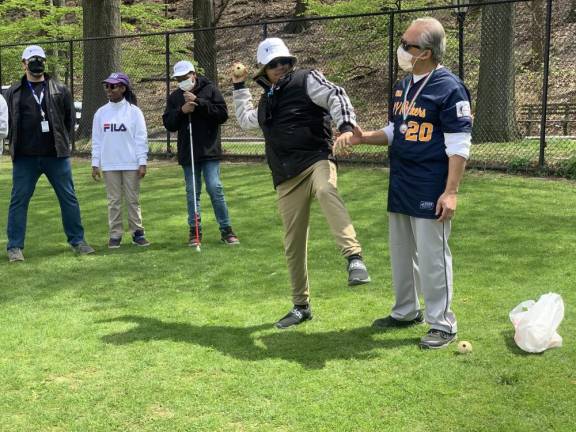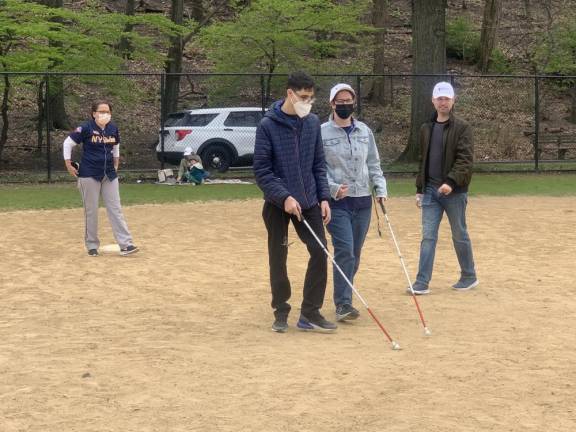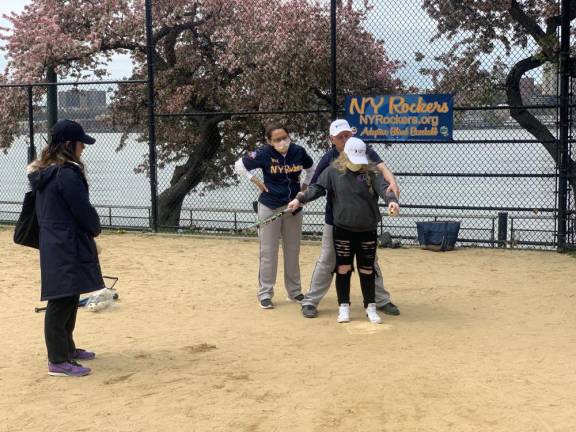NYC’s Vision Impaired Teens Play Adaptive Baseball
A collaboration in Riverside Park between Lighthouse Guild and the NY Rockers teaches students how to throw and hit a ball



A group of visually impaired teenagers tried a new activity on the Upper West Side on Saturday: adaptive blind baseball.
Teenaged students from afterschool programs at Lighthouse Guild, a local nonprofit which provides services to the visually impaired, arrived at the Riverside Park ballfields near 72nd Street excited to learn a new game. The event was the result of a collaboration between the Lighthouse Guild and the NY Rockers, an adult adaptive blind baseball league which practices in Central Park.
Adaptive baseball, designed for the visually impaired, was invented in Italy over 25 years ago and later brought to the US. It makes use of auditory stimuli to compensate for vision-based aspects of the sport. The ball itself has jangling bells with openings, so that players can hear the ball as it approaches and make contact with the bat.
Most of the teens had never played baseball before, so the event began with the basics. Working together with sighted volunteers and NY Rockers players, Lighthouse faculty split the students into groups and taught them both throwing and batting.
Creating Sounds
Volunteers stood at first and second bases creating sounds designed to help the players orient themselves in the space. For instance, the volunteer at first base used a tool to make a honking sound, while the volunteer at second used one that made a clapping sound. By following these sounds, the players were able to run the bases and complete the journey at home plate.
For many of the students, the event was an important opportunity to exercise outdoors, and to experience playing a sport which is ordinarily difficult for those with vision impairment.
“[As] someone with vision loss, you might think you don’t have a lot of ways to do things. And a lot of things don’t feel as accessible,” says Jaydan Mitchell, a youth services coordinator at Lighthouse Guild. “Going to the gym doesn’t feel as accessible. Swimming, playing sports. And so we want them to know that there are options. And they’re fun! And they’re normal!”
Lily, a 14-year-old from Queens, says she was excited about the opportunity. “It’s really nice to get outside. I do like baseball.”
Despite the challenges she and her fellow students face due to their visual impairments, Lily expressed optimism and said she had been able to enjoy a variety of activities through the Lighthouse programs.
“[My vision loss] hasn’t made it too difficult,” she says. “And yeah, the program does make things easier. They adjust things so that we can do them. If I [were] just playing baseball I [wouldn’t] be able to see where anything is.”
“That’s what this is all about,” says Mitchell. “To get them having fun and moving.”
“[As] someone with vision loss, you might think you don’t have a lot of ways to do things ... We want them to know that there are options. And they’re fun!” Jaydan Mitchell, a youth services coordinator at Lighthouse Guild